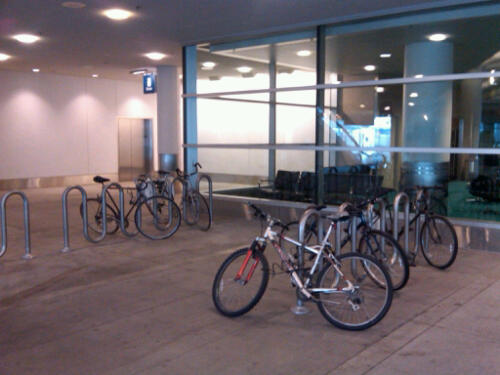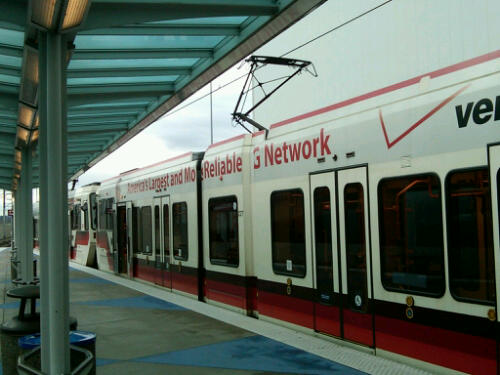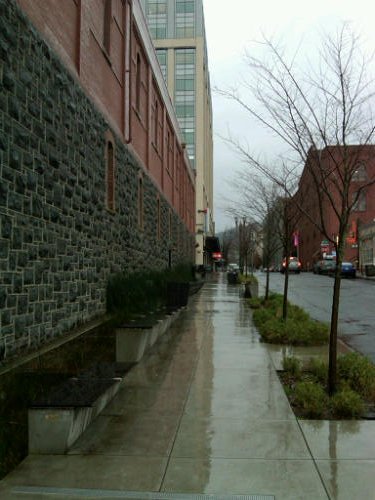Enjoy the pictures... I'll write more on Portland later... especially the Hipster economy.

Plane from Seattle --> Portland. A little greenwashing? I think so

You know your entering a different world when there is bicycle parking at the airport terminal.

My ride from the airport awaits.

On-street Bicycle parking at Powell's Books

Portland does a great job of using public (park) space to accentuate the utility and connectivity of the various rail lines.

Only in Portland

Another innovative urban design... this time add green infrastructure and reduce rain water runoff.

Building with both wind turbines and solar on the roof.

Making it that much easier not to own a car.

And finally the beer... my god the beer. A little nitro never hurt anyone... and anyway can't get this shit in the stores. Don't worry Kettlehouse, your still the beer I hold dear... though I think I'll miss Amnesia.





3 comments:
Offset your carbon guilt: http://www.nativeenergy.com/
You were in Portland when I was. That's awesome. We also went car-free so LOTS of walking, but the beer stops made it worth it.
Just found your blog through your story about your unfortunate evening. Glad to hear you are ok.
http://www.livablestreets.com/people/msonn
Portland Landscaping stresses the role of human impacts on landscape structures and functions. It also proposes ways for restoring degraded landscapes. Landscape ecology explicitly includes humans as entities that cause functional changes on the landscape. Landscape ecology theory includes the landscape stability principle, which emphasizes the importance of landscape structural heterogeneity in developing resistance to disturbances, recovery from disturbances, and promoting total system stability. This principle is a major contribution to general ecological theories which highlight the importance of relationships among the various components of the landscape. Integrity of landscape components helps maintain resistance to external threats, including development and land transformation by human activity. Analysis of land use change has included a strongly geographical approach which has led to the acceptance of the idea of multifunctional properties of landscapes.
Post a Comment